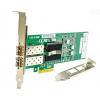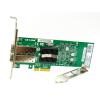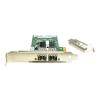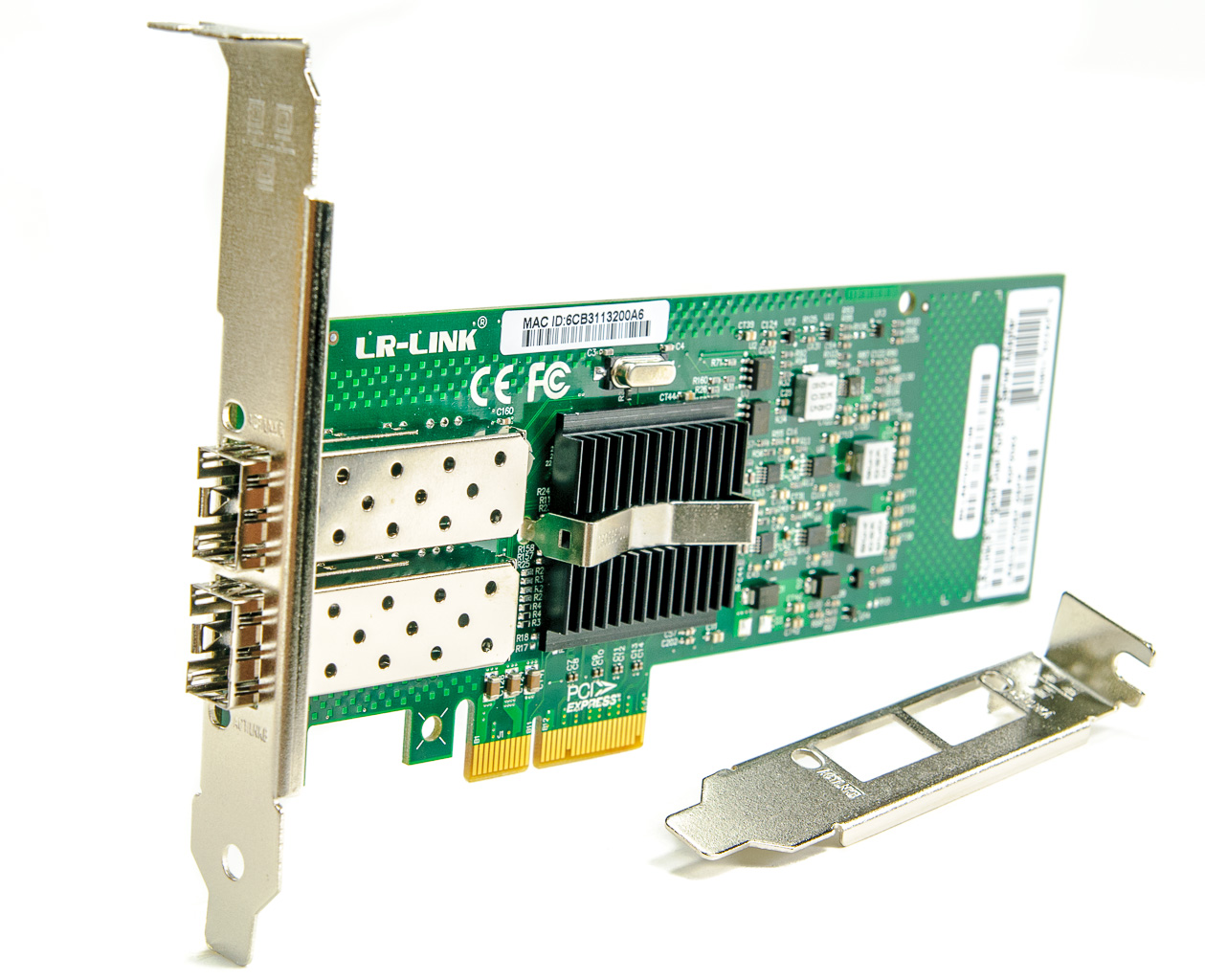-
€



Description
The LR-LINK LREC9702EF-2SFP Dual-Port Server Adapter is PCIe 1GbE network ethernet adapters. Built with the Intel 82576 Gigabit Ethernet Controller, these new adapters showcase the next evolution in GbE networking features for the enterprise network and data center. These features include support for multi-core processors and optimization for server virtualization.
Designed for Multi-Core Processors
These dual-port adapter provide high-performing, dual-port Gigabit connectivity in a multi-core platform as well as in a virtualized environment. In a multi-core platform, the adapters support different technologies such as multiple queues, receive-side scaling, MSI-X, and Low Latency Interrupts, that help in accelerating the data across the platform, thereby improving application response times.
The I/O technologies on a multi-core platform make use of the multiple queues and multiple interrupt vectors available on the network controller. These queues and interrupt vectors help in load balancing the data and interrupts amongst themselves in order to lower the load on the processors and improve overall system performance. For example, depending upon the latency sensitivity of the data, the low level latency interrupts feature can bypass the time interval for specific TCP ports or for flagged packets to give certain types of data streams the least amount of latency to the application.
Optimized for Virtualization
The LR-LINK LREC9702EF-2SFP Multi-Port Server Ethernet Adapter showcase the latest virtualization technology called Intel Virtualization Technology for Connectivity (IntelVTfor Connectivity).IntelVTfor Connectivity is a suite of hardware assists that improve overall system performance by lowering the I/O overhead in a virtualized environment. This optimizes CPU usage, reduces system latency, and improves I/O through- put.IntelVTfor Connectivity includes:
Virtual Machine Device Queues (VMDq)
Intel I/O Acceleration Technology
Use of multi-port adapters in a virtualized environment is very important because of the need to provide redundancy and data connectivity for the applications/workloads in the virtual machines. Due to slot limitations and the need for redundancy and data connectivity, it is recommended that a virtualized physical server needs at least six GbE ports to satisfy the I/O requirement demands.
Virtual Machine Device queues (VMDq)
VMDq reduces I/O overhead created by the hypervisor in a virtualized server by performing data sorting and coalescing in the network silicon.2 VMDq technology makes use of multiple queues in the network controller. As data packets enter the network adapter, they are sorted, and packets traveling to the same destination (or virtual machine) get grouped together in a single queue. The packets are then sent to the hypervisor, which directs them to their respective virtual machines. Relieving the hypervisor of packet filtering and sorting improves overall CPU usage and throughput levels.
LR-LINK LREC9702EF-2SFP PCIe Gigabit adapter provides improved performance with the next-generation VMDq technology,which includes features such as loop back functionality for inter-VM communication, priority-weighted bandwidth management, and doubling the number of data queues per port from four to eight. It now also supports multicast and broadcast data on a virtualized server.
Intel I/O Acceleration Technology
Intel I/O Acceleration Technology (Intel I/OAT) is a suite of features that improves data acceleration across the platform, from networking devices to the chipset and processors, which help to improve system performance and application response times. The different features include multiple queues and receive-side scaling, Direct Cache Access (DCA), MSI-X, Low-Latency Interrupts, Receive Side Scaling (RSS), and others. Using multiple queues and receive-side scaling, a DMA engine moves data using the chipset instead of the CPU. DCA enables the adapter to pre-fetch data from the memory cache, thereby avoiding cache misses and improving application response times. MSI-X helps in load-balancing I/O interrupts across multiple processor cores, and Low Latency Interrupts can provide certain data streams a non-modulated path directly to the application. RSS directs the interrupts to a specific processor core based on the applications address.
End-to-end Wired Security
The LR-LINK LREC9702EF-2SFP Multi-Port Server Ethernet Adapter is PCIe adapters to provide authentication and encryption for IPsec and LinkSec. LinkSec is already designed into the network adapter hardware. These adapters are future-proof and prepared to provide LinkSec functionality when the ecosystem supports this new technology.
IPsec provides data protection between the end-point devices of a network communication session. The IPsec offload feature is designed to offload authentication and encryption of some types of IPsec traffic and still delivers near line-rate throughput and reduced CPU utilization.
LinkSec is an IEEE industry-standard feature that provides data protection in the network. The IEEE 802.3ae and IEEE 802.3af protocols provide hop-to-hop data protection between two network devices in the transaction line between the host and destination. The two network devices must support the LinkSec technology. The network devices could be servers, switches, and routers.






 Polski
Polski English
English Italiano
Italiano Español
Español Čeština
Čeština Српски
Српски Deutsch
Deutsch Ελληνικά
Ελληνικά Slovenský
Slovenský




